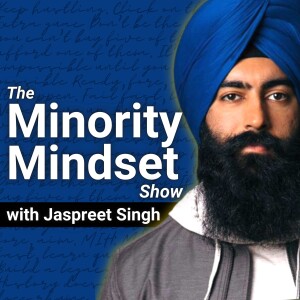Dame Julia Unwin, reframing the discussion on poverty in the UK
If you’re looking for inspiration about making a difference in today’s society, look no further.
Dame Julia Unwin was Chair of the Inquiry into Civil Society Futures, which published in 2018. In the same year she wrote a report on The Role of Kindness in Public Policy for the Carnegie Trust. For ten years she was chief executive of the Joseph Rowntree Foundation, where she was the driving force behind the 2016 report “UK Poverty: Causes, costs and solutions.”
Julia thinks that we need “a fundamental rethink and recognise that we’re here to serve people in poverty, to serve people who are disadvantaged, to serve people who haven’t been given a fair chance.” That is not just about asking people questions, but also listening very carefully.
Julia started her working life as a Field Worker for the Liverpool Council for Voluntary Services. Other roles have included Community Liaison Officer, Director of the Homeless Network, Chair of the Refugee Council, and Charity Commissioner. Julia says that most of her working life is the result of “accident and opportunity mixed with a bit of curiosity.” She’s always sought to work where she could affect social change, “but to pretend there was a plan would be to mislead you.”
The report on Civil Society Futures contends that “Civil society risks becoming irrelevant if we do not change”: Julia believes that new ways of organising are emerging constantly in communities, for example the response to the recent flooding in the UK, and there is a risk to the established institutions if they don’t recognise the new ways of operating. Civil Society Futures has provided “a roadmap for how we can behave differently and how institutions and organisations can adapt their practices, behaviours and attitudes.”
Julia maintains that local government has always been dependent on the network of association that naturally arises within any community. It’s a recognition of this that has made ‘The Wigan Deal’ a success, yet it is perilous to imagine that such networks are inexhaustible. She is concerned that there is a tendency to use the same procurement approach for all local authority services, and that the approach that works for IT and cleaning may be ill-suited to civil society relationships, with the consequence that the authority risks being further distanced from the community.
The Wigan Deal and similar initiatives in the NW have positioned local government as a resource for the community, and not the community as a resource for local government. The deal embodies a new relationship for those organisations which are (to use a 70s turn of phrase) ‘outside the state.’
The Wigan Deal and similar initiatives have also ushered in a different style of leadership, one which requires courage and flexibility, and the ability to follow as well as lead. Julia would contend that the success of such arrangements depends on a network of leaders rather than a single leader. The deep connections that people make with one another are essential to those networks. However, there are developments that militate against the new way of leading is that leaders don’t always have the permission and the space to lead on account of social media for example.
Julia is “a huge optimist” – humans have always been at our very best in difficult times. “The Sheffield civil society that you can see outside of this office was created in the heat of the industrial revolution when people’s lives were utterly miserable…” She says it is “important that we have the tools and the self-belief to think that we can do something about it.”
Julia sees the declaration of a climate crisis by the Government is a tipping point in the realisation (though it may not be a tipping point in action yet) that there is an issue to be faced. She would contend that the last general election was a tipping point that reflected the deep despair and anger in some parts of England.
Julia would agree with Kirsty McNeill of Save the Children that civil society is losing the battle over narrative and we can’t afford to. Julia thinks that optimism matters because the people whose lives are not grim and who have a platform or a voice, and freedom and agency, need to be focused on systematically building a better future and not give in to the hostile narrative about people who are seen as unsuccessful.
She refers to the work that Joseph Rowntree Foundation are doing to reframe the way we talk about poverty, making it clear that it’s a risk to all of us and not just to ‘them.’ She has learnt that “if we talk about things happening to people who are different from us we are always missing the point.” She says “nobody ever gets someone off the streets, people do that themselves, and our job is to serve and help them.
Julia says leaders in civil society need the confidence to say “these social problems are not inevitable, we have the solutions to them, we know what can be done, and we know what the cost, risk, and threat to society is if we fail to do it.” She also thinks that future leaders won’t necessarily come with labels. “There is tremendous leadership in our communities.” Social change is driven by “love, anger, and a determination to have things different.”
Julia believes that a lot of the scandals of recent times – Windrush, Grenfell, grooming and abuse in Rotherham – have arisen because we didn’t give people a voice and we didn’t listen acutely enough or were wilfully blind.
Julia maintains that the growth in inequality in the UK is holding us back, “wasting our talent and skills and damaging lives at a rate that should make every capitalist quake because it is so dangerous what’s going on.” To become a divided country would be economically catastrophic and deeply damaging not just for the poorest people, but for the whole of society.
Julia’s report for the Carnegie Trust “Kindness, Emotions and Human Relationships: The Blind Spot in Public Policy” arose from an invitation from the Carnegie trust to “think about something you haven’t had time to think about.” Julia said she wanted to consider where our emotions are in public policy, because everything about public service is about relationships and yet we talk as if everything is about outputs and metrics.
With regard to her own leadership philosophy, Julia believes that good leaders take the blame and share the credit at all times, are humble, are there to serve, and are curious and want to find things out. “An awful lot of leaders find [saying sorry] hard but I just find it’s the best way to do things.” “And most importantly, listen really, really carefully…”
Heroic leadership is no longer effective (if it ever was). Today leaders are to be found encouraging, supporting, and coaching. Certainty is far from a ‘superpower’ and often the most certain people are making the biggest mistakes. Empathy, compassion, and understanding are key.
One of the achievements that Julia is proudest of is being part of a coalition of organisations that persuaded the then Thatcher government to back an approach to rehousing homeless people in London. She is proud of it because at the time it opposed a common view that people sleeping on the streets was inevitable. The experience taught her the power of collaboration, and of optimism.
There’s nothing to stop the approach being adopted today. It involves ensuring that people don’t sleep on the streets for long, providing long term housing as an essential prerequisite to people rebuilding their lives, and listening to each individual. And compared to the cost of people going to prison, ending up in A&E and in mental hospitals, it would be cost effective.
A mistake that Julia recognises in her career is in being intimidated from saying things by being “slightly overwhelmed by someone who appeared to be much cleverer.”
Julia has been supported by so many people in her career, especially other women. “Anyone who gets to any position of leadership without saying they have been supported all the way is not telling the truth in my view.”
Julia’s self-care regime includes a very supportive husband and family, walking and the great outdoors. She reads novels and finds that it provides her with an insight into the world of other people, for example Queenie by Candice Carty-Williams, and Ordinary People by Diana Evans.
She would advise her 20-year old self to take her time, not worry so much about what others think of you, and have confidence in her instincts.
More Episodes
All Episodes>>Create Your Podcast In Minutes
- Full-featured podcast site
- Unlimited storage and bandwidth
- Comprehensive podcast stats
- Distribute to Apple Podcasts, Spotify, and more
- Make money with your podcast











